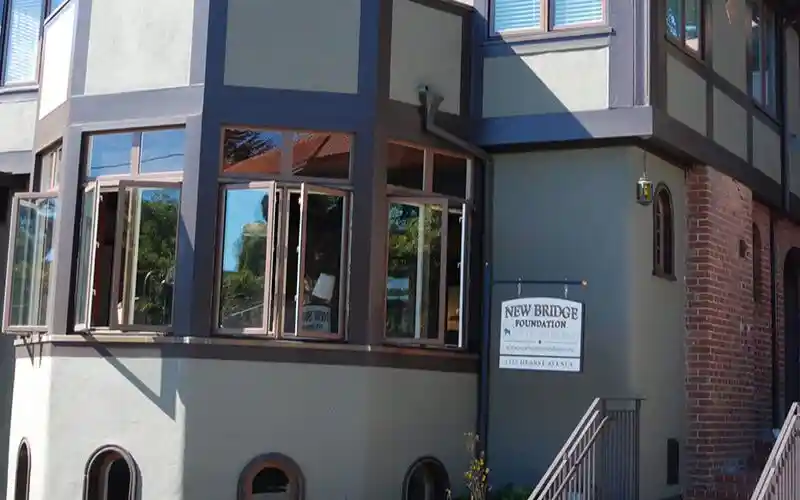





 When battling the challenges of addiction, many individuals discover that their journey is complicated by underlying mental health disorders. This combination, known as a dual diagnosis, requires specialized care that addresses both the addiction and the mental health condition concurrently. Understanding dual diagnosis and finding the right treatment provider can be overwhelming, but with the right information, you can find the resources you need to begin your journey toward recovery.
When battling the challenges of addiction, many individuals discover that their journey is complicated by underlying mental health disorders. This combination, known as a dual diagnosis, requires specialized care that addresses both the addiction and the mental health condition concurrently. Understanding dual diagnosis and finding the right treatment provider can be overwhelming, but with the right information, you can find the resources you need to begin your journey toward recovery.
Dual diagnosis, also referred to as co-occurring disorders, is when a person has both a mental health disorder and a substance use disorder. These conditions often interact with each other, making treatment more complex. Common mental health issues that co-occur with addiction include depression, anxiety, bipolar disorder, and schizophrenia.
The interplay between mental illness and substance use disorders is complex. Mental health conditions can sometimes lead to substance abuse as individuals may use drugs or alcohol to self-medicate. Conversely, prolonged substance abuse can exacerbate existing mental health issues or even trigger new ones. This bidirectional relationship makes it challenging to determine which condition appeared first, but it underscores the importance of treating both simultaneously.
Treating only alcohol or drug addiction without addressing the underlying mental health issues can lead to relapse and incomplete recovery. Conversely, treating the mental health disorder without addressing the substance use can also result in unsuccessful outcomes. Dual diagnosis treatment centers are equipped to provide integrated care that targets both issues simultaneously, leading to a more holistic and effective recovery process to address mental conditions such as eating disorders, borderline personality disorder, panic disorders, etc, and co-occurring substance abuse issues.
An integrated approach to treatment is essential for those with a dual diagnosis. This means that care providers coordinate the treatment of both the mental health disorder and the substance use disorder in a seamless, cohesive manner. This approach helps to ensure that the individual receives comprehensive care that addresses all aspects of their condition, promoting better outcomes and long-term recovery.

Recognizing dual diagnosis can be challenging because the symptoms of mental health disorders and addiction often overlap. However, some common signs include:
Behavioral indicators of dual diagnosis can include erratic behavior, sudden mood swings, and changes in daily habits. For example, an individual may begin to neglect their personal hygiene, miss work or school, and lose interest in hobbies they once enjoyed. These changes can be indicative of underlying mental health issues exacerbated by substance abuse.
Emotional and psychological signs of dual diagnosis can include severe anxiety, feelings of hopelessness, intense irritability, and paranoia. These symptoms can be debilitating and often lead individuals to seek relief through substance abuse, creating a vicious cycle that further entangles their addiction and mental health issues.
Standard addiction treatment programs may not have the resources or expertise to address the complexities of dual diagnosis. Specialized dual diagnosis treatment centers offer several key benefits:
Multidisciplinary teams are crucial in dual diagnosis treatment because they bring together various experts to address the different aspects of the individual’s condition. Psychiatrists can prescribe and manage medications, psychologists can provide therapy, and addiction counselors can offer support and guidance for overcoming substance use. This team-based approach ensures that all aspects of the individual’s health are addressed.
Effective dual diagnosis treatment involves a variety of therapeutic approaches tailored to the individual’s needs. These may include:
Medication management is a cornerstone of dual diagnosis treatment. Medications can help stabilize mood, reduce anxiety, and manage other mental health symptoms. Additionally, certain medications can aid in reducing cravings and managing withdrawal symptoms associated with substance abuse disorders. Proper medication management requires careful oversight by medical professionals to ensure that the medications are effective and that any potential side effects are monitored.
Behavioral therapies such as CBT and DBT are highly effective in treating dual diagnosis. CBT helps individuals identify and change negative thought patterns and behaviors, while DBT focuses on building coping skills and emotional regulation. These therapies can help individuals understand the underlying causes of their disorders and develop healthier ways of thinking and behaving.
Holistic therapies, including mindfulness, yoga, and art therapy, are increasingly being integrated into dual diagnosis treatment plans. These approaches focus on treating the whole person, promoting physical, emotional, and spiritual well-being. Mindfulness practices can help individuals stay present and manage stress, while yoga can improve physical health and reduce anxiety. Art therapy provides a creative outlet for expressing emotions and processing experiences.
Finding the right dual diagnosis treatment center can be daunting, but with the right approach, you can identify a facility that meets your needs. Here are some steps to help you in your search:
Researching and reading reviews of dual diagnosis treatment centers can provide valuable insights into the quality of care provided. Look for testimonials from former patients and their families, as these can offer firsthand accounts of their experiences. Additionally, check for any accreditation or certifications that the treatment center may have, as these can indicate a commitment to high standards of care.
Consulting with healthcare professionals, such as your primary care doctor or a mental health specialist, can help you identify reputable dual diagnosis rehab centers. These professionals often have networks of trusted facilities and can provide recommendations based on your specific needs and circumstances.

Once you have identified a potential dual diagnosis treatment center, there are several steps to take to prepare for treatment:
The treatment process for dual diagnosis typically involves several stages, each designed to address different aspects of recovery:
Detoxification is a critical first step in the treatment process, especially for individuals with substance use disorders. The detox process helps to rid the body of harmful substances and manage withdrawal symptoms. Medical supervision during detox is essential to ensure the individual’s safety and comfort.
Inpatient treatment provides a highly structured and supportive environment for individuals with dual diagnosis. This setting allows for intensive therapy and continuous monitoring. Outpatient treatment, on the other hand, offers flexibility for individuals who need to maintain their daily responsibilities while receiving treatment. Both options have their benefits, and the choice depends on the individual’s specific needs and circumstances.
Recovery from a dual diagnosis is a long-term process that requires ongoing commitment and support. After completing a formal treatment program, individuals should engage in aftercare programs and continue practicing the skills they learned during treatment.
Building a strong support system is essential for maintaining long-term recovery. This can include family members, friends, support groups, and mental health professionals. Engaging with these support systems provides encouragement, accountability, and a sense of community.
Relapse prevention is a key component of maintaining recovery. This involves identifying triggers that may lead to substance abuse or mental health crises and developing strategies to cope with them. Ongoing therapy and support groups can provide tools and techniques for managing stress and avoiding relapse.

Dual diagnosis refers to the condition where an individual has both a mental health disorder and a substance use disorder. Both conditions need to be treated simultaneously for effective recovery.
Dual diagnosis treatment is crucial because it addresses both the mental health disorder and the substance use disorder concurrently, leading to a more comprehensive and effective recovery.
If you or a loved one is experiencing symptoms of a mental health disorder along with substance dependence, it is essential to seek an evaluation from a healthcare professional who can determine if dual diagnosis treatment is needed.
Look for treatment centers with integrated treatment plans, multidisciplinary teams, comprehensive assessments, and tailored therapies. Ensure they have a good reputation and positive reviews.
Yes, many dual diagnosis treatment centers are located in various regions. You can choose one based on your preference for proximity or a change of environment.
Dual diagnosis treatment often includes medication management, behavioral therapies (such as CBT and DBT), group therapy, holistic therapies (like mindfulness and yoga), and family therapy.
The duration of treatment varies depending on the individual’s needs and the severity of their conditions. Treatment can range from a few weeks to several months, followed by ongoing support and aftercare.
The first step is to acknowledge the need for help and seek an evaluation from a healthcare professional. They can provide a diagnosis and recommend appropriate treatment options.
Family members can support their loved ones by being involved in the treatment process, attending family therapy sessions, and providing emotional support. Educating themselves about dual diagnosis can also help them understand what their loved one is going through.